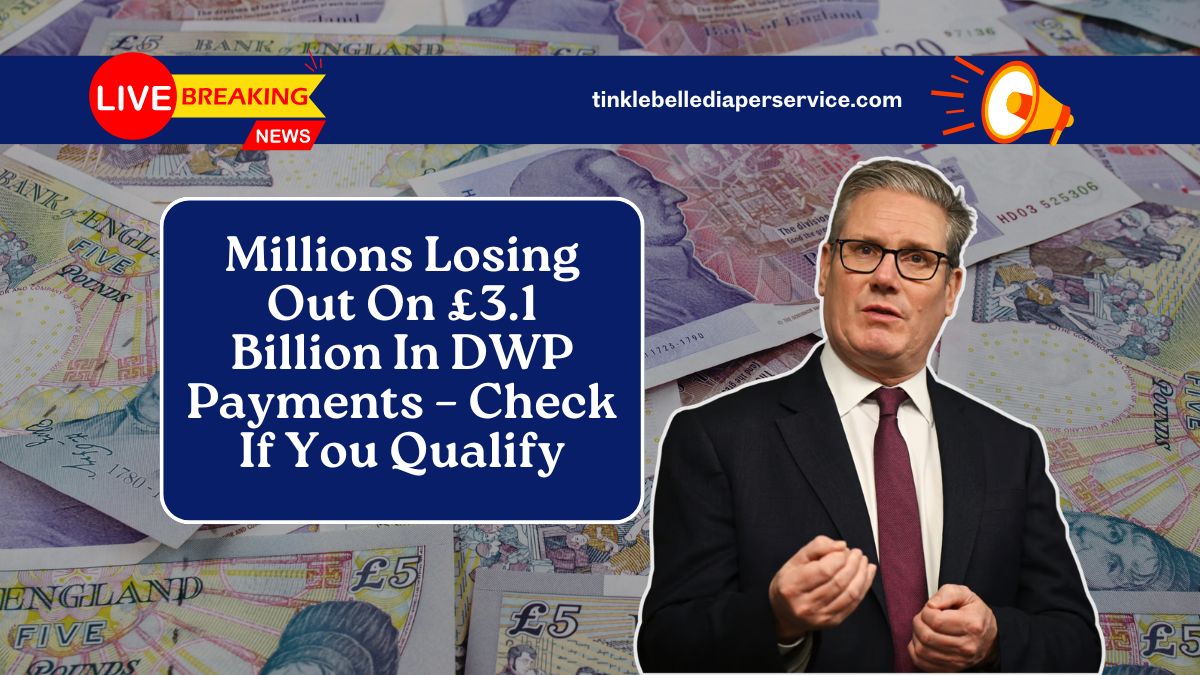Millions of people across the UK are missing out on £3.1 billion in unclaimed Department for Work and Pensions (DWP) benefits. With the total DWP benefit expenditure now at a staggering £292.2 billion, a surprising 1.3%—roughly £3.7 billion—is failing to reach those who need it the most.
This is largely due to people not updating the DWP about changes in their circumstances or not knowing they are eligible for more help.
If you’re receiving Universal Credit (UC), Personal Independence Payment (PIP), or Disability Living Allowance (DLA), you may be among the millions who are missing out. Here’s how you can ensure you’re getting what you’re entitled to.
Which DWP Benefits Are Affected Most?
The most affected benefits where large sums go unclaimed are:
| Benefit Type | Estimated Unclaimed Amount | Common Reasons for Underpayment |
|---|---|---|
| Personal Independence Payment (PIP) | £1.06 billion | Failure to report worsening long-term health or disability |
| Universal Credit (UC) | £980 million | Not updating job status or changes in circumstances |
| Disability Living Allowance (DLA) | £850 million | Not informing DWP about increasing care or mobility needs |
| Other Support (e.g., Housing/Pension) | £800 million (combined) | Missed eligibility due to lack of awareness or updates |
This unclaimed money represents real financial support that could make a huge difference to people’s lives.
Why Are So Many Missing Out on Payments?
There are several key reasons why benefits are going unclaimed:
- Lack of Awareness: Many people do not realise they are eligible for additional payments, especially if their health conditions have worsened over time.
- Failure to Report Changes: Claimants often forget to inform the DWP about changes such as new health diagnoses, increase in rent, job loss, or family changes like a new child.
- Complexity of the Process: The process to report a change or request an increase can seem confusing, deterring people from taking action.
- Assuming Ineligibility: Some individuals wrongly assume they won’t qualify due to income or savings, without checking current rules.
Changes You Must Report to DWP
To make sure you receive your full entitlement, it’s important to report any relevant changes in circumstances to the DWP. Here are the most common ones:
Health-Related Changes
- New diagnosis or long-term illness
- Increase in physical or mental health issues
- Additional caregiving needs
Work and Income Changes
- Change in job status (started or left a job)
- Reduction or increase in hours
- Self-employment income changes
Living Situation Changes
- Moving house
- Change in rent amount
- Someone moving in or out of your home
Family Circumstances
- Having a baby or adopting a child
- Child turning 16 or leaving education
- Separation or divorce
How to Report a Change
Reporting a change can be done in several ways depending on your benefit:
- Universal Credit: Log in to your online journal and update your details.
- PIP or DLA: Contact DWP by phone to report health or care changes.
- Housing Benefit: Inform your local council of rent or household updates.
- Pension Credit: Notify any changes to income or assets via DWP’s helpline.
The DWP may ask for supporting documents such as a doctor’s note, rent agreement, or payslips.
What Happens If You Don’t Report Changes?
If you fail to report changes, you might:
- Miss Out on More Money: Your payment won’t increase to reflect your new needs.
- Get Overpaid: This might seem like a good thing, but overpayments must be repaid and can result in penalties.
- Face a Fine: You could be fined £50 or more for failing to report a change in your circumstances.
Reporting even minor changes is essential to stay on the right side of the rules and to get the full support you’re entitled to.
The DWP is responsible for delivering vital financial support, yet billions remain unclaimed due to missed updates and lack of awareness.
With £3.1 billion in benefits being left on the table, checking your eligibility and reporting any change in circumstances can significantly increase your monthly payments.
Whether it’s a change in your health, income, or family, taking the time to update your details could ensure you get the support you deserve. Don’t let money you qualify for go unclaimed—act now and secure your rightful benefits.
FAQs
How do I know if I’m eligible for additional DWP benefits?
You should regularly assess your situation, especially if you’ve had changes in health, job status, rent, or household. Use official DWP tools or speak to an advisor to check.
Can I still get backdated payments if I forgot to report a change earlier?
In some cases, yes. If you can provide evidence of when the change occurred, the DWP may offer backdated payments, especially for PIP and DLA.
What documents do I need to report a change?
You may need documents like medical reports, rent agreements, payslips, or letters from your employer or landlord. The DWP will let you know what they require once the change is reported.

